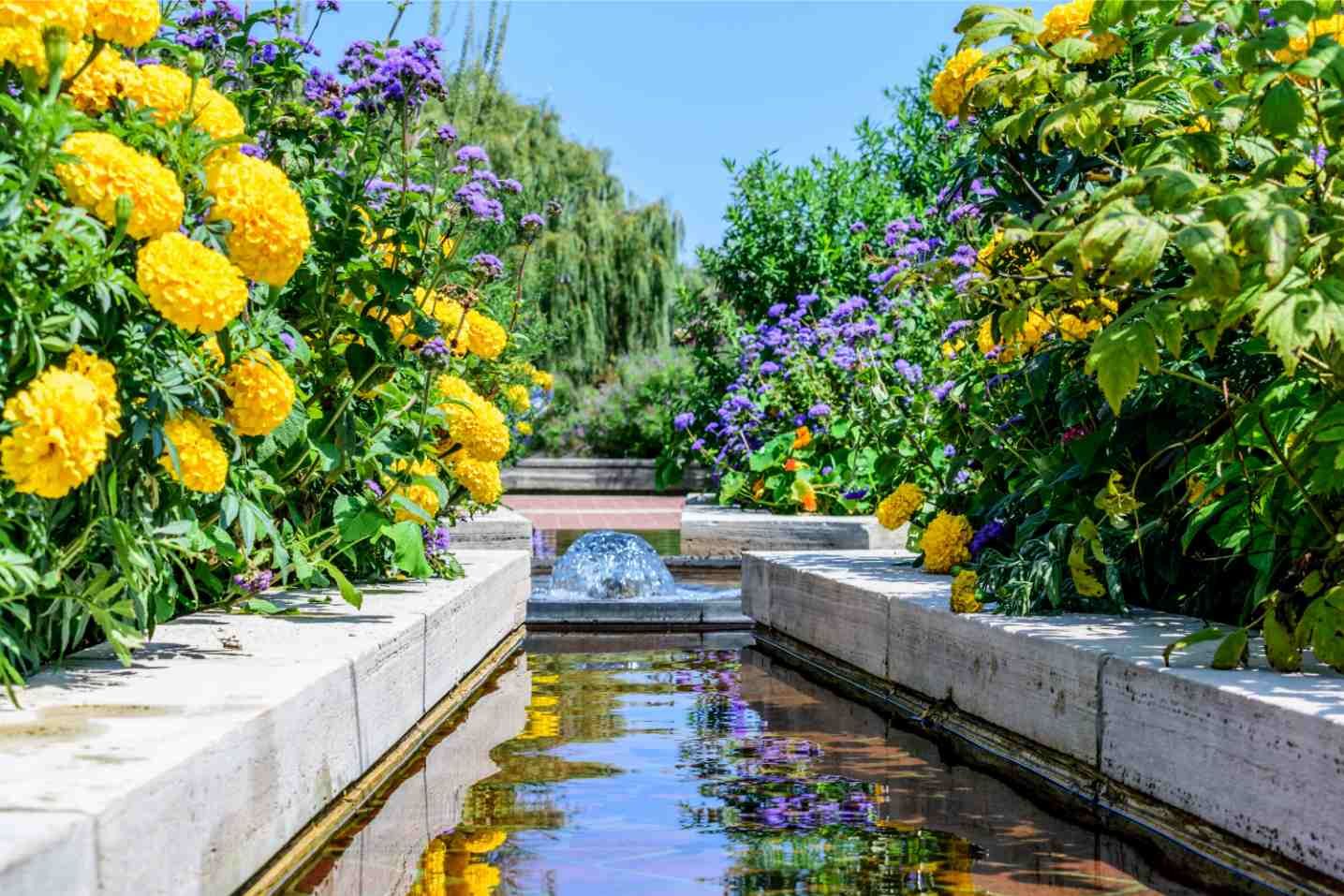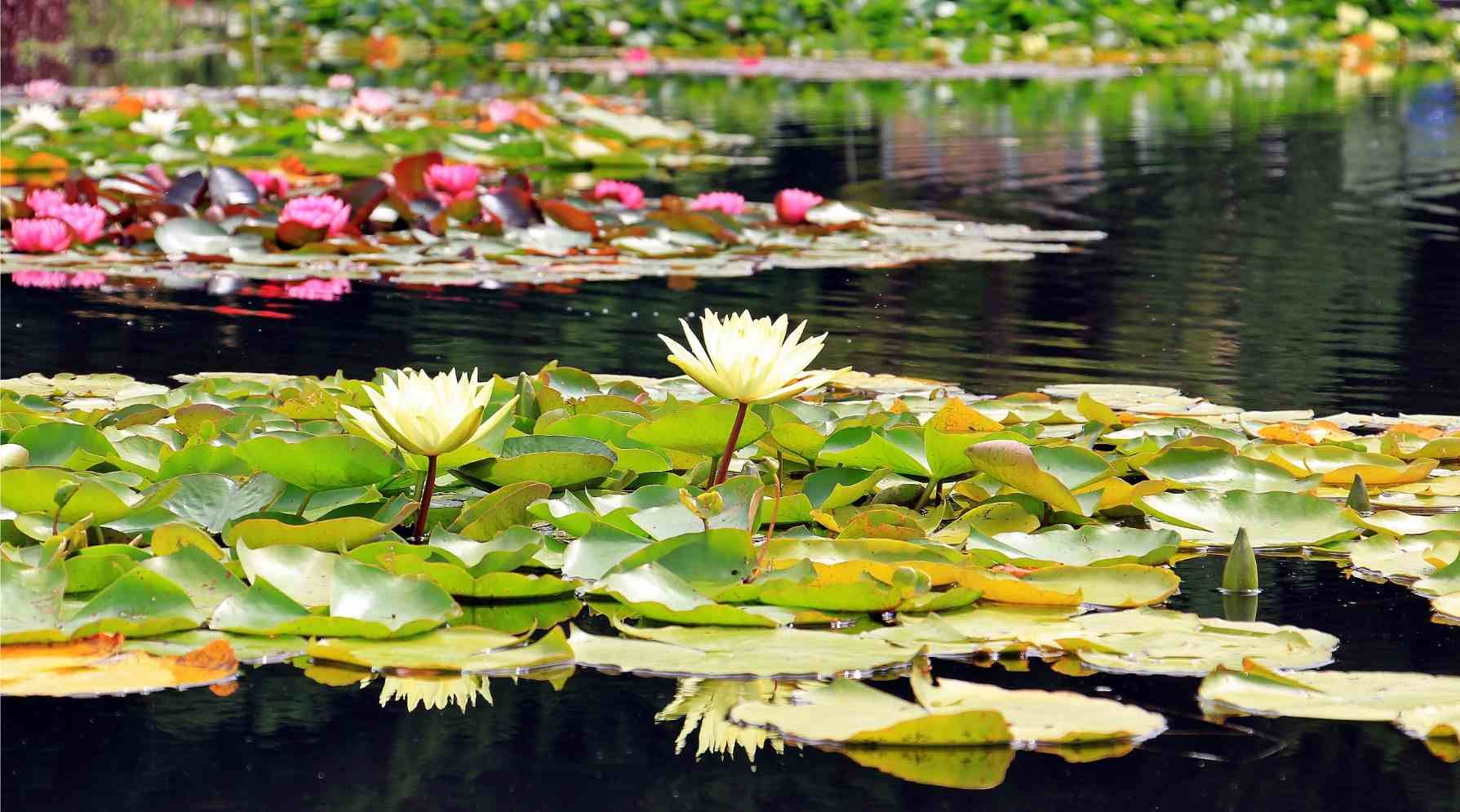Naturally Improve Your Pond in Tampa with a Wetland Filtration System
While wetland filters are not the only option for your pond, they work very well if you're trying to include a lot of fish, very large fish, or want a system that helps do some of the work to clean your pond so you don't have to do as much. A wetland filtration system is a natural and environmentally friendly method of filtering and improving the water quality in your aquatic environment. It aims to replicate a wetland environment with rocks, plants and of course a specific filter and pump to process and remove impurities so you have a healthy aquatic ecosystem created in large part by biological filtration (meaning it is cleaned naturally). Below we'll go into more depth about wetland filters, sometimes called bog filters, what they can do for your pond, as well as some brief differences with alternative filters.
How Does a Wetland Filtration System Work?
A wetland filtration system can go into a carefully designed portion of your new pond or it can be added to the edge of an existing pond. Water from the pond must cover the area above the filter, so it can flow up through the plant roots and the surrounding gravel. The wetland plants and the floor substrate (your rocks and pebbles) provide a natural filtration process. Both the roots of the plants and the rocks serve different purposes that benefit the pond. Beneficial bacteria grows on the rocks helping to remove pollutants and excess nutrients, while also breaking down organic matter from the water. The roots of the pants help to pull excess nutrients from the water preventing algae growth and helping to avoid any negative smells from forming around your pond.
A couple major pieces are buried in the wetland area to initiate this process. The filter, buried on the bottom (but still on top of the underlayment), will receive water from pipe or hose and push it up through all the layers above it which work to naturally clean the water. A snorkel or cleanout barrel connects to the filter (called a centipede by a some brands) and collects any muck to be removed at a later time. The sediment falls to the bottom because the water is flowing so slowly. The clearer water gets pulled up through and redistributed back into the flow of the pond water, after passing through the layers above and getting an additional cleanse from the plants and good bacteria.
Is a Wetland Filter Right For Me?
Still curious about the benefits a wetland filtration system can have for your pond in Tampa? Usually one of the favorite benefits of pond owners who utilize a wetland filter system is the improvement in water quality. By remove excess nutrients, sediments, and pollutants from the water, you wind up with clearer and healthier pond water. The filter and clearer water will enhance the habitat for all living elements, including plants plus aquatic life and wildlife, encouraging a diverse habitat and improving the overall ecosystem. Lastly, wetland filtration systems are relatively low-maintenance compared to other mechanical filters. They're perfectly safe for your koi and other fish too.
Some items to keep in mind: the initial set up and design of this filter requires extra planning in part because of its size. Wetland filtration systems tend to take up more space compared to some mechanical filters.
When a wetland is constructed properly, the pond should not have to be drained in order to clean the snorkel. It may require professional expertise but this kind of process may only be needed annually or even less than that.
What Are My Other Options?
As we've already explained, there are smaller, less expensive, more standard options for filtering your pond. These tend to fall under the term mechanical filters. They use physical barriers like foam or filter pads to remove debris and particles from the water. They are typically easy to install and maintain. They should not be viewed as inferior filters by any means. We install mechanical filters and would venture to say that the majority of backyard ponds operate with these traditional filters. They usually require more frequent cleaning and can be less effective at nutrient removal compared to biological filters like the wetland style but they do the fundamental jobs of cycling and filtering your pond's water.
Keep in mind that if you already have a traditional pond, adding a biological filters will probably happen in conjunction with your existing mechanical filter. You'd be running both styles at that point so if they're kept in working order and emptied or cleaned regularly, your pond should remain looking beautiful.
These filters promote the growth of beneficial bacteria that break down organic waste and toxins in the water. Biological filters are excellent for maintaining water quality and are often . However, they may not be as effective in removing solid debris.
What Are the Major Differences Between Wetland Filters and Mechanical Filters?
Mechanical filters are very easy to install and maintain. They are effective at removing debris which will help to keep the water clear. Their filtering processes are less effective at nutrient removal and these systems tend to require more frequent cleaning.
Biological filters, wetland filters, or bog filters are superior at nutrient removal. This helps maintain water quality and the beneficial bacteria growth on the rocks in the system more actively cleans the water as it is pushed or pulled through them regularly. Floating debris may not be removed as effectively with wetland filters, but this can be countered if you already have a mechanical filter running or by installed a skimmer, similar to the kind used in swimming pools to collect leaves and floating debris. Wetland filters may only have to be cleaned once a year, but because of their construction and placement, it is usually necessary to hire a professional to do this cleaning.
Wetland Filtration Systems in Tampa Heights, FL
ButtonWhat Pond Filter is Best?
Your choice of filter depends on your specific pond needs and preferences. If you're looking for a natural, eco-friendly solution that also enhances the habitat, a wetland filtration system can be an excellent choice. In some cases, a hybrid approach that combines wetland filtration with a mechanical filter can provide the best of both worlds, offering effective water quality management while maintaining a natural and aesthetically pleasing pond environment. Ultimately, the right choice depends on your pond's size, your maintenance capacity, and your goals for water quality and aesthetics. If budget and space are two of your major decision factors, a mechanical filter may be best when starting off. You can always upgrade to a wetland option down the road assuming space allows for this.





